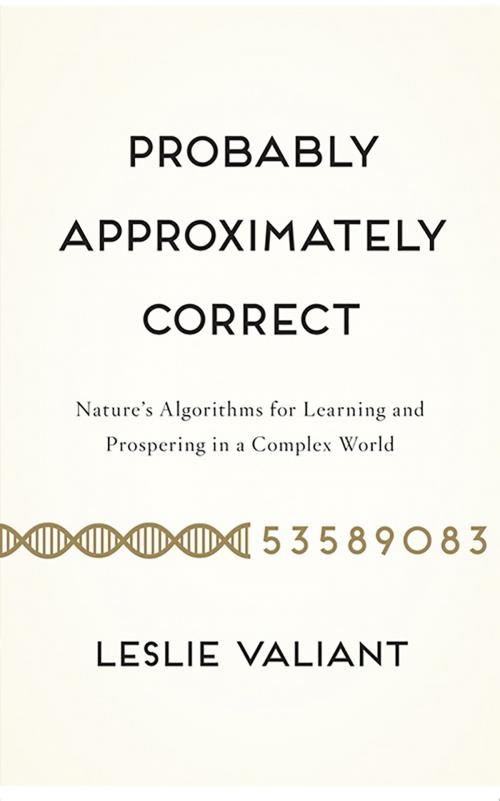Probably Approximately Correct
Nature's Algorithms for Learning and Prospering in a Complex World
Nonfiction, Computers, Advanced Computing, Artificial Intelligence, Computer Science, Science & Nature, Science, Biological Sciences, Evolution| Author: | Leslie Valiant | ISBN: | 9780465037902 |
| Publisher: | Basic Books | Publication: | June 4, 2013 |
| Imprint: | Basic Books | Language: | English |
| Author: | Leslie Valiant |
| ISBN: | 9780465037902 |
| Publisher: | Basic Books |
| Publication: | June 4, 2013 |
| Imprint: | Basic Books |
| Language: | English |
We have effective theories for very few things. Gravity is one, electromagnetism another. But for most things—whether as mundane as finding a mate or as major as managing an economy—our theories are lousy or nonexistent. Fortunately, we don't need them, any more than a fish needs a theory of water to swim; we're able to muddle through. But how do we do it? In Probably Approximately Correct, computer scientist Leslie Valiant presents a theory of the theoryless. The key is “probably approximately correct” learning, Valiant's model of how anything can act without needing to understand what is going on. The study of probably approximately correct algorithms reveals the shared computational nature of evolution and cognition, indicates how computers might possess authentic intelligence, and shows why hacking a problem can be far more effective than developing a theory to explain it. After all, finding a mate is a lot more satisfying than finding a theory of mating.
Offering an elegant, powerful model that encompasses all of life's complexity, Probably Approximately Correct will revolutionize the way we look at the universe's greatest mysteries.
We have effective theories for very few things. Gravity is one, electromagnetism another. But for most things—whether as mundane as finding a mate or as major as managing an economy—our theories are lousy or nonexistent. Fortunately, we don't need them, any more than a fish needs a theory of water to swim; we're able to muddle through. But how do we do it? In Probably Approximately Correct, computer scientist Leslie Valiant presents a theory of the theoryless. The key is “probably approximately correct” learning, Valiant's model of how anything can act without needing to understand what is going on. The study of probably approximately correct algorithms reveals the shared computational nature of evolution and cognition, indicates how computers might possess authentic intelligence, and shows why hacking a problem can be far more effective than developing a theory to explain it. After all, finding a mate is a lot more satisfying than finding a theory of mating.
Offering an elegant, powerful model that encompasses all of life's complexity, Probably Approximately Correct will revolutionize the way we look at the universe's greatest mysteries.















